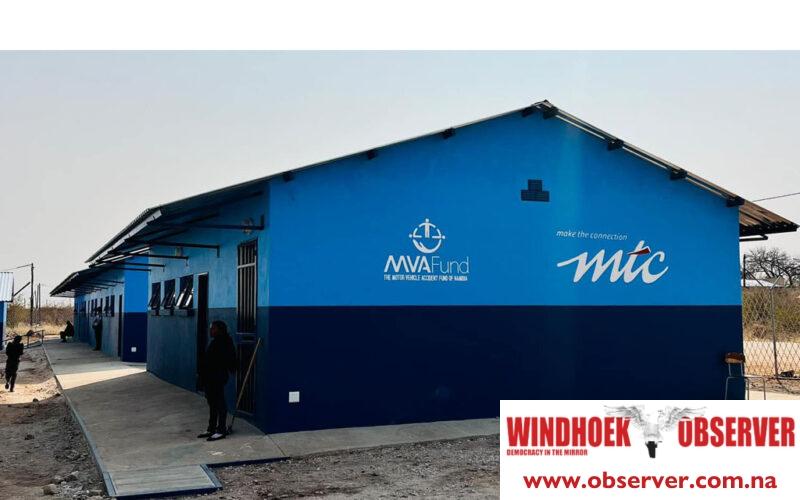Niël Terblanché
Overcrowded classrooms at Tsumeb Primary School are now a thing of the past, thanks to the donation of eight new classrooms, a laboratory, and a storeroom.
Funded by the MTC Rural Schools Project with N$3.4 million, this project is a corporate social investment (CSI) initiative launched in 2019 by MTC in collaboration with the MVA Fund.
MTC’s corporate social responsibility project aims to assist the government in enhancing sub-par learning environments and standardising education practices across Namibia.
The rural schools project focuses on renovating dilapidated structures and adding new classroom blocks where needed.
School principal Petrina Shafewa expressed her gratitude during the event, highlighting the positive impact of the new facilities on the school’s 992 learners.
“We had a real problem with overcrowding, which was not conducive to effective teaching and learning. We are grateful to MTC and the MVA Fund for aiding us with much-needed infrastructure,” she said.
The handover of the new infrastructure on Wednesday was graced by the Minister of Education, Arts and Culture, Anna Nghipondoka.
Nghipondoka lauded the collaboration between MTC, MVA Fund, and the Ministry of Education, noting that the benefits extend beyond Tsumeb Primary School.
“The impact of this donation resonates throughout the community, the region, and indeed, the entire country. By enhancing educational infrastructure, we are investing in the future of Namibia—ensuring that our children have the tools and environment needed to excel, academically and socially,” she said.
She also acknowledged the ministry’s ongoing efforts to address the infrastructural backlog, which includes over 3,000 classrooms and other essential educational facilities.
The minister stressed the importance of public-private partnerships in achieving these goals.
Rosalia Hausiku, the MVA Fund’s chief executive officer, reiterated the Fund’s commitment to smart partnerships for impactful community projects.
“Education is not the sole mandate of the government; it is the business of all. Everyone has to help the country achieve the highest standards of education. The MVA Fund is proud to be investing in a meaningful project such as this,” Hausiku said.
MTC’s chief human capital, marketing, and corporate affairs officer, Tim Ekandjo, called on other businesses in the corporate and financial sector to enhance their corporate social responsibilities.
“I call upon those who are making large profits in the fishing sector to take even one percent of the income generated from their large fishing quotas and plough that back into the Namibian education sector. Push it forward. Education is a responsibility that we all carry as a nation, and the issue of education is an issue of every corporate entity,” Ekandjo urged.
Since its inception, the MTC Rural Schools Project has constructed a total of 49 classrooms, benefiting regions such as Kunene, Otjozondjupa, Oshana, Hardap, Karas, Kavango West, Zambezi, Ohangwena, and now Oshikoto.
According to Ekandjo, the latest addition at the Tsumeb Primary School addresses a critical need for more classroom space, alleviating the issue of overcrowded classrooms.
He said that the successful implementation of the MTC Rural Schools Project points to the critical role of collaboration between the private sector and government in addressing national challenges and improving educational outcomes for Namibian children.
Both MTC and the MVA Fund have pledged to construct additional classrooms and storeroom facilities at Zadan Primary School in the Kavango-East Region later this year.




